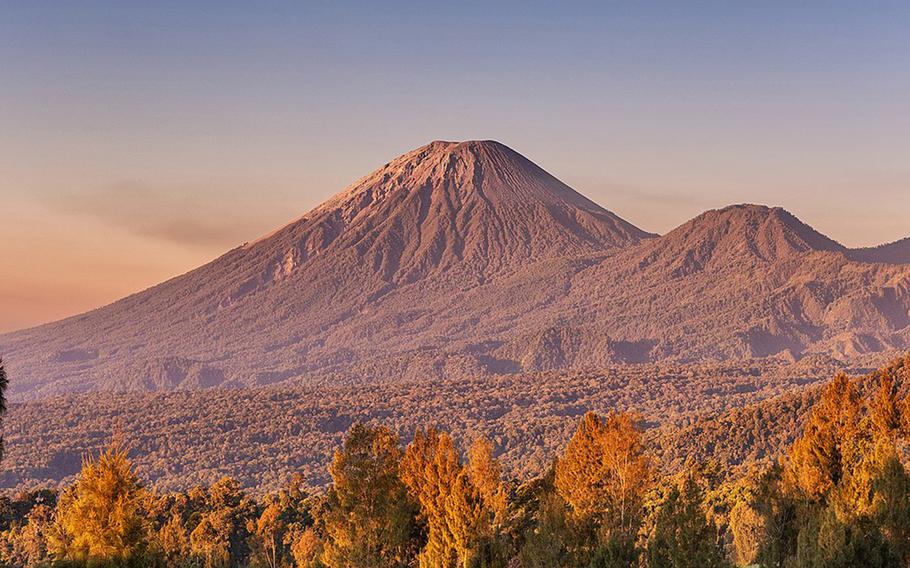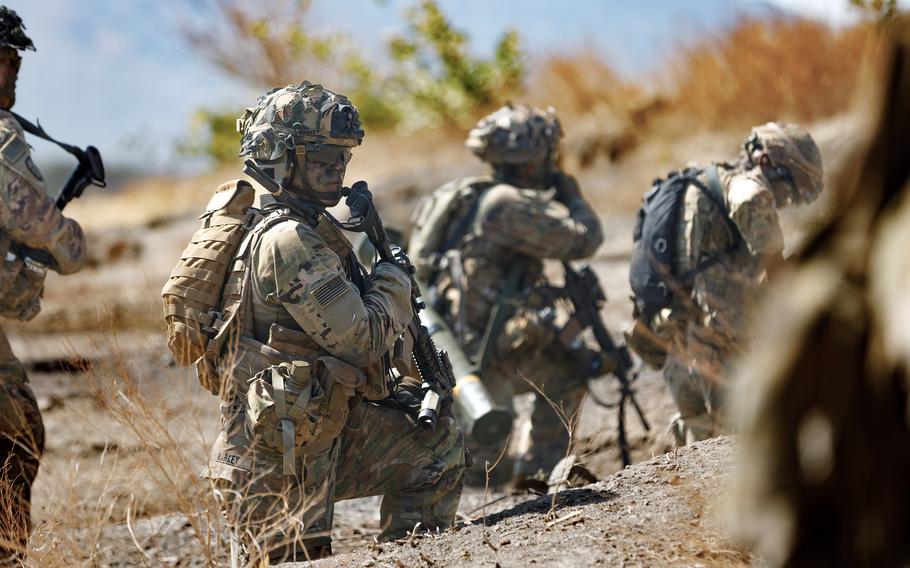
Mount Semeru, an active volcano on the Indonesian island of Java, is pictured Sept. 26, 2018. (Wikimedia Commons)
The U.S. Army and Air Force have canceled parachute training in Indonesia due to a volcanic eruption on the island of Java, a 25th Infantry Division spokesman said Monday.
American, Indonesian and British paratroopers had planned to board Air Force C-17 Globemaster IIIs and C-130J Super Hercules at Naval Air Facility Atsugi, Japan, fly 3,000 miles south to Indonesia, link up with Japanese troops and parachute into a drop zone Saturday on East Java, said Maj. Jeff Tolbert, a spokesman for the Hawaii-based 25th Infantry Division.
The operation, involving around 200 paratroopers including members of the Alaska-based 11th Airborne Division, was delayed and then canceled due to ash spewing from Mount Semeru, Tolbert said by text Monday.
The 25th ID is overseeing training in Indonesia this month as part of the annual Super Garuda Shield exercise involving 5,000 troops from seven nations.
At just over 12,000 feet, almost as high as Japan’s Mount Fuji, Semeru is the tallest mountain on Java, where the exercise is taking place.

U.S. soldiers from 1st Battalion, 27th infantry Regiment train during the Super Garuda Shield exercise in East Java, Indonesia, Monday, Sept. 11, 2023. (Keith Thornburgh/U.S. Army)
“The volcano was spewing volcanic ash, smoke (and) fog near the drop zone … that’s not something we want to put paratroopers in if we can help it,” Tolbert said.
Semeru erupted in 2021, killing more than 50 people and displacing thousands.
Volcanic ash from Mount Bromo, a 7,641-foot volcano on Java, was a hazard for U.S. airmen flying airlift missions in a pair of C-130Js over Indonesia during last summer’s Cope West exercise.
The ash can damage aircraft, Maj. Sean McKee, a C-130J pilot with the 36th Expeditionary Airlift Squadron from Yokota Air Base, Japan, said in July.
“We could see it when we were flying,” he said. “We had to watch out for volcanic ash and make sure we didn’t fly within 50 miles of it. If ash goes into the engines, it would do severe damage.”
The canceled airborne operation was part of “forcible entry” practice for taking terrain from an enemy force, the 25th ID commander, Maj. Gen. Marcus Evans, said by phone Thursday from Puslatpur Marine Base in Indonesia.